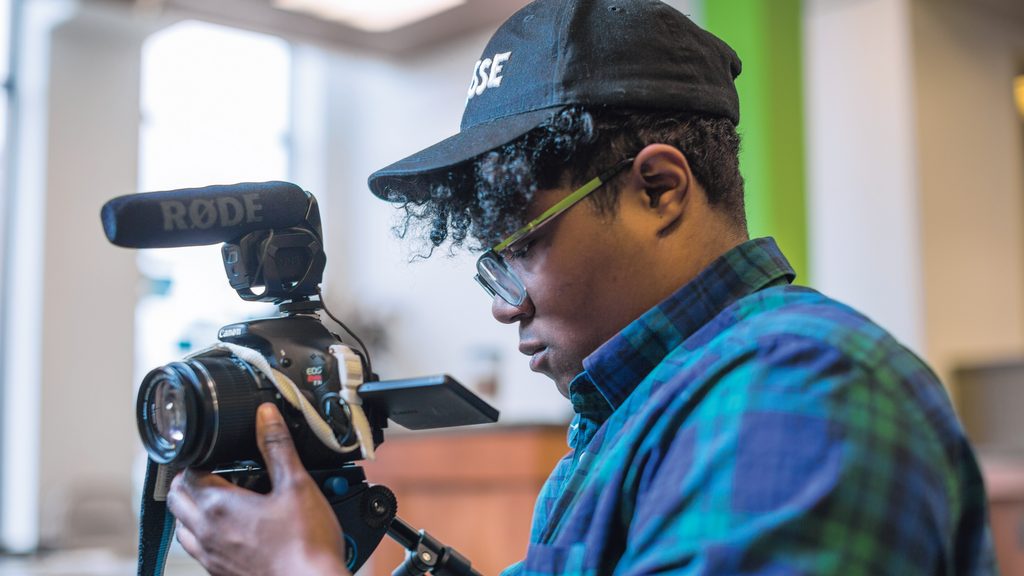“Here I was writing this giant metaphor about coming out as transgender, and I didn’t realize it,” Fryer says. “And then Carol was like, ‘What are you actually trying to say here?’ I didn’t understand how it was about me yet. It’s more about a crisis of self, and thinking through ‘Is this who I am?’ I don’t think there are enough movies that look at process rather than the result.”
The response to trans•ience at Sundance, and from strangers who saw the film online after a Buzzfeed feature on Fryer, continues to floor him. He never imagined that anyone outside of his close friends and Carleton professors would view his film. And he definitely didn’t think anyone would relate to it.
“I just figured that the people who knew me would see it and say, ‘Oh, Brit is so self-involved. He literally made a movie about himself because he’s too much,’ ” says Fryer, laughing. “But it showed me that my work can have unintended universality. It’s not a movie about a black trans person.”
Facing the Future
Away from the spotlight of Sundance, Fryer is busy honing his craft in Minneapolis. He doesn’t have a full-time job, instead opting for several part-time gigs in order to maintain scheduling flexibility. This spring, Fryer began shooting a documentary about the overpolicing of African American youth on the city’s north side. He is financing the work with a grant from grassroots nonprofit Neighborhoods Organizing for Change. Fryer also is putting the final touches on IN, a short film about a sorority sister who is struggling to understand her sexuality. The film, shot in Northfield, stars several Carleton students.
His experience at Sundance continues to open doors. Clarke and other Sundance staff members check in regularly with Ignite fellows to help establish and maintain networking contacts and to invite them to other film festivals. And Fryer’s mentor, director Malik Vitthal (Imperial Dreams), is just a text or call away. Having the support of the filmmaking community has given Fryer the confidence to move to New York City later this year to be near other Ignite fellows.
At heart, Fryer is still an avid movie buff who would rather take his creative cues from the big screen. But thanks to Sundance, he finally feels like he’s earning the right to be called a filmmaker.
“Being part of Ignite has shown me the realities of the profession,” Fryer says. “I know when I should be applying to Sundance film labs, I know the kind of shorts I should be writing before I work up to a feature. I realize how long the process is now. I have to schedule this like it’s my job. Yeah, I don’t get paid for it, but if I don’t work on it, nothing is going to happen.”
